News & Announcements
- Details
- Written by Joshua Wachtel
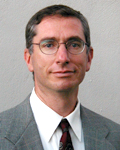 Miguel Tello, director of IIRP Central America, appeared on a radio podcast - This Is Wisdom - based, I believe in Canada. Miguel is very articulate and talks about his own restorative journey, hitting on many key players who influenced his work and thinking. To hear the 30-minute program, click here.
Miguel Tello, director of IIRP Central America, appeared on a radio podcast - This Is Wisdom - based, I believe in Canada. Miguel is very articulate and talks about his own restorative journey, hitting on many key players who influenced his work and thinking. To hear the 30-minute program, click here.
- Details
- Written by Joshua Wachtel
 The IIRP eForum provides short, hopeful emails that include brief summaries and links to significant articles, research reports and other information about the growing field of restorative practices. On February 24 the eForum posted this book review, "Commitments to Reconciliation: A Review of Reconciliation and Architectures of Commitment: Sequencing Peace in Bougainville" by IIRP professor and founding faculty member Frida Rundell. Rundell reviews book 2 of 3 published to date by the Peacebuilding Compared Project (http://peacebuilding.anu.edu.au) of the Centre for International Governance & Justice (CICJ) of the Australian National University (ANU), Canberra.
The IIRP eForum provides short, hopeful emails that include brief summaries and links to significant articles, research reports and other information about the growing field of restorative practices. On February 24 the eForum posted this book review, "Commitments to Reconciliation: A Review of Reconciliation and Architectures of Commitment: Sequencing Peace in Bougainville" by IIRP professor and founding faculty member Frida Rundell. Rundell reviews book 2 of 3 published to date by the Peacebuilding Compared Project (http://peacebuilding.anu.edu.au) of the Centre for International Governance & Justice (CICJ) of the Australian National University (ANU), Canberra.
The researchers are: project leader John Braithwaite, ANU professor, Australian Research Council Federation (ARC) fellow and founder of the Regulatory Institutions Network (RegNet) at the ANU; Hilary Charlesworth, Chief Investigator and Legal Frameworks director, ANU professor and ARC laureate fellow; Valerie Braithwaite, ANU professor and RegNet director; Kate Macfarlane, project officer and Kylie McKenna, researcher.
- Details
- Written by Joshua Wachtel
Restorative practices, well known in schools and the criminal justice field, is gaining ground in fields involving the family, higher education and the workplace. Shalem Mental Health Network, which provides counseling services and a variety of community service programs across Ontario, Canada, has launched a program that focuses on transforming conflict and building healthy community in religious congregations.
FaithCARE—Faith Communities Affirming Restorative Experiences — (see www.shalemnetwork.org/?page_id=567) — grew from a two-day retreat in 2007 that explored the possibilities for employing restorative practices in a faith-community context. Following the retreat, the group, including restorative justice pioneers Mark Yantzi and the late Rev. Stu Schroeder, as well as others still involved in the project, formed a steering committee to develop operational concepts for resolving conflict in churches and find ways to use restorative processes for decision making and relationship building in faith communities.
- Details
- Written by Joshua Wachtel
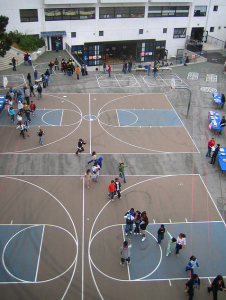 Photo by rick at Flickr Creative Commons, some rights reservedI've noticed a continuing theme involving a growing awareness of systemic prejudice in schools toward minority students. This manifests in higher rates of suspension and expulsion – which the Dignity in Schools Campaign describes with the phrase "School Pushout." This also shows up in increased use of metal detectors in minority communities - see this August 29, 2011 post. Restorative practices are being used to help reverse these trends.
Photo by rick at Flickr Creative Commons, some rights reservedI've noticed a continuing theme involving a growing awareness of systemic prejudice in schools toward minority students. This manifests in higher rates of suspension and expulsion – which the Dignity in Schools Campaign describes with the phrase "School Pushout." This also shows up in increased use of metal detectors in minority communities - see this August 29, 2011 post. Restorative practices are being used to help reverse these trends.
Amy Crawford reports in the San Francisco Examiner:
Black and Latino students are disciplined more often than white and Asian students, according to national data released Tuesday by the Department of Education’s Office for Civil Rights Tuesday.
- Details
- Written by Joshua Wachtel
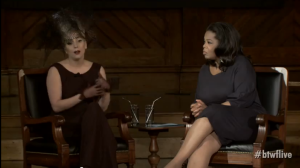 Lady Gaga and Oprah During the BTWF LaunchAs reported in a post last month, SaferSanerSchools Instructor Lee Rush was invited along with 80 other national leaders to Harvard University's Berkman Center for Internet and Society to help launch Lady Gaga's Born This Way Foundation (BTWF). Held on February 29th, the event was also sponsored by the MacArthur Foundation and drew high-profile names like Oprah Winfrey (who will broadcast part of the event on an upcoming television special), Deepak Chopra, and U.S. Secretary of Health and Human Services Kathleen Sebelius.
Lady Gaga and Oprah During the BTWF LaunchAs reported in a post last month, SaferSanerSchools Instructor Lee Rush was invited along with 80 other national leaders to Harvard University's Berkman Center for Internet and Society to help launch Lady Gaga's Born This Way Foundation (BTWF). Held on February 29th, the event was also sponsored by the MacArthur Foundation and drew high-profile names like Oprah Winfrey (who will broadcast part of the event on an upcoming television special), Deepak Chopra, and U.S. Secretary of Health and Human Services Kathleen Sebelius.
Now Rush reports:
The event was a way for the BTWF to gain “input from experts in the youth development field to help them formulate goals and priorities.” During the day, I met with twelve other professionals in the School Culture and Climate work-stream. A total of five other small groups met during the day focusing on issues such as research and evaluation, legalities, youth-driven initiatives, school-based and social media curriculum. At the end of the day, each work-stream reported out to the larger group results of their day's work and recommendations. The BTWF will be producing a paper encompassing the day's proceedings.
- Details
- Written by Joshua Wachtel
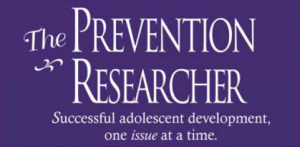 An upcoming issue of The Prevention Researcher will focus on Restorative Justice. They write:
An upcoming issue of The Prevention Researcher will focus on Restorative Justice. They write:
It has been our observation that many people are still unfamiliar with restorative justice or unsure what it means. Therefore, the goal of this issue is to introduce the topic, show what restorative justice looks likes in school and community environments, highlight the most recent research findings about its effectiveness (for the offender, victim, and community), and provide strategies for creating successful restorative justice programs and policies.
- Details
- Written by Joshua Wachtel
Here's a truly lovely video of restorative justice pioneer Mark Yantzi of Canada speaking about the inspiration for some of the first victim-offender meetings as a way of resolving a series of crimes - the notorious Elmira case. Yantzi is director of Community Justice Initiatives.
I love Yantzi saying at the very end of this 8-minute talk, "Crime is something that harms people, but if in the addressing of crime we can make things better for everyone, we've really been restorative in what we do."
- Details
- Written by Joshua Wachtel
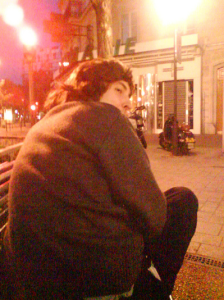 photo by AlecSchueler at Flickr Creative CommonsAn article from the Irish Times discusses the use of restorative justice as one solution to making an impact in terms of dealing with anti-social behavior, and criticizes the use of prisons and the negative impact they can have on offenders.
photo by AlecSchueler at Flickr Creative CommonsAn article from the Irish Times discusses the use of restorative justice as one solution to making an impact in terms of dealing with anti-social behavior, and criticizes the use of prisons and the negative impact they can have on offenders.
The lord mayor [of Dublin, Ireland said] there must be “consequences” for how anti-social behaviour affected the quality of life of communities.
“Prison can result in significant deterioration of behaviour resulting in worse outcomes for our communities,” he said.
- Details
- Written by Joshua Wachtel
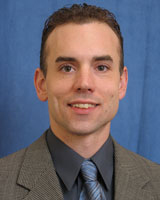 John Bailie, IIRP Director of Continuing Education
John Bailie, IIRP Director of Continuing Education
The use of restorative practices “is a highly effective response to bullying” in schools. So said John Bailie in his keynote address to a conference on bullying held at Southern Connecticut State University.
Restorative practices “builds a bullying-resistant school climate and teaches responses to bullying that hold children accountable while restoring social bonds,” said Bailie, Director of Continuing Education for the International Institute for Restorative Practices (IIRP), a graduate school in Bethlehem, PA.
Bailie spoke at SCSU’s 14th annual “Inside the Schoolhouse Door” Conference, attended by administrators and schoolteachers. The theme of this year’s conference was “Bullying: The Clinical Response.”
- Details
- Written by Joshua Wachtel
 The Baltimore Curriculum Project writes on their news blog:
The Baltimore Curriculum Project writes on their news blog:
Thank you to Hampstead Hill Academy and the International Institute for Restorative Practices (IIRP) for an inspiring introduction to Restorative Practices this morning for over 40 Baltimore City Schools principals and teachers! Attendees visited classrooms and participated in restorative circles.
IIRP professional development trainer Beverly Manigo writes in:
The International Institute for Restorative Practices extends its appreciation to Hampstead Hill Academy and the principals, coordinators and directors from Baltimore City Public Schools who participated in the Open House. With the help of the Baltimore Curriculum Project and principals from both City Springs and Hampstead Hill Academy we opened the doors of one of their schools so that leaders in Baltimore City could see first hand the results of implementing Restorative Practices in a BCPS school. The turnout was great and principals, teachers and parents are excited about the work we are doing.

Restorative Works Year in Review 2024 (PDF)
All our donors are acknowledged annually in Restorative Works.
